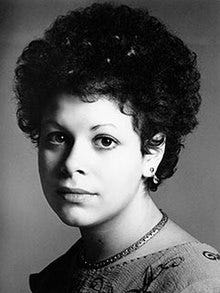I Wish I Was a Willow: The Success of Phoebe Snow
I recently came across an image of a 1963 movie marquee. It read, “It’s a Mad, Mad, Mad, Mad World . . . Continuous Showings.” For some of us, the planet seems that way these days. Anger and animosity rule. Disaster lurks. But music can often be consoling in confusing and chaotic times.
The singer Phoebe Snow was not only a talented performer, she was also what in Yiddish is known as a mensch, a person of “character, rectitude, dignity, a sense of what is right.”
We live in a world ruled by celebrity, hype, and relentless ballyhoo. Performers in many fields are measured not only by their talent or accomplishments, but also by their outsized influence, big bucks, and fatuous fame. We admire those who promote themselves most tirelessly, whose faces grin the widest on our screens and stages.
Phoebe Snow did not initially want to perform. She was nervous on stage and envisioned herself as a studio musician, providing guitar licks for the songs of others.
When she did burst onto the music scene in 1974, she brought a style that drew from soul, jazz, and blues. She was an accomplished songwriter. Her first album went gold. Her initial single, “Poetry Man,” rose to number five on the Billboard list. She appeared on the second episode of Saturday Night Live and toured the country, on her way to superstar status.
She sang:
You are a genie,
And all I ask for is your smile
Each time I rub the lamp.
Then her daughter, Valerie Rose, was born severely disabled. Phoebe made the decision to devote herself to caring for a special needs child. Her career did not end there, but music became her second priority. She disappeared from public view for long stretches and worked only sporadically. She released ten more albums during the decades ahead but never regained her show-business momentum. In later years, she sang television jingles to make money.
It’s easy to imagine giving in to regret or disappointment in such a situation. But Phoebe recognized that her daughter was a gift, someone who was not needy but bountiful. She described Valerie as an “amazing human being,” a “little slice of perfection.” The girl saved her mother from the impatience and frustration endemic to a performer’s life by supplying her with a continual outpouring of unconditional love. “I was blessed,” Phoebe declared.
Phoebe Snow had a beautiful laugh, a startling vocal range, and a remarkable authority as a singer, guitar player, and songwriter. She was amused to be included among a list of prominent Black musicians from New Jersey because she wasn’t Black. She had been born Phoebe Ann Laub in 1950, the daughter of a working-class Jewish family from Teaneck.
Among her sometimes haunting lyrics were these from “Harpo’s Blues”:
I'm lost again,
I think I'm really scared,
I won't be back at all this time
And have my deepest secrets shared.
I'd like to be a willow,
A lover, a mountain, or a soft refrain,
But I'd hate to be a grown-up
And have to try to bear my life in pain.
Phoebe’s daughter loved her and lived in her love for thirty-one years. Valerie Rose died in 2007. Phoebe herself suffered a stroke four years later at the age of sixty. Her hour was up. And so passed a wonderful talent and, in the truest sense of the word, a success.
Listen to Phoebe Snow on YouTube:
Poetry Man
Harpo’s Blues






Such an angel voice. I imagine her daughter got many beautiful songs sung with much love.
Morning Jack. I love music. I mainly listen to it in my car. Jim Croce at the moment. Phoebe Snow was a beautiful soul who loved her daughter more than life. Another great Talking to America read. Thank you